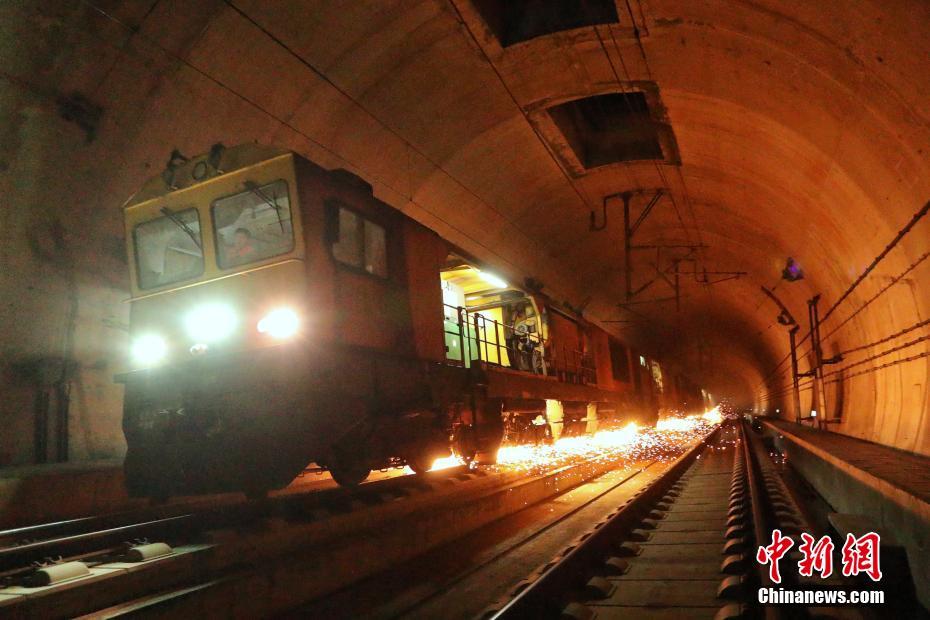One minute after the Cassini spacecraft plunges into Saturn’s atmosphere,Chingari Chaubey (2023) S02 Hindi Web Series it will die, but we won't know it until 83 minutes later.
NASA will declare Cassini dead at 7:55 a.m. ET Friday morning, however, the intrepid spacecraft would have actually tumbled through Saturn’s churning clouds and incinerated like a meteor more than an hour and a half before that.
The final signal NASA scientists receive from Cassini will be a ghostly cry from a long-gone spacecraft.
SEE ALSO: The Cassini spacecraft will crash into Saturn to save its moonsThis is because, at closest, Saturn is some 750 million miles from Earth. NASA expects the final signal, shot out from Cassini’s antenna as it falls into Saturn’s depths, to reach Earth 83 minutes after that final event.
Via Giphy"The spacecraft's final signal will be like an echo. It will radiate across the solar system for nearly an hour and a half after Cassini itself has gone," said Earl Maize, Cassini project manager at NASA's Jet Propulsion Laboratory, in a statement. "Even though we'll know that, at Saturn, Cassini has already met its fate, its mission isn't truly over for us on Earth as long as we're still receiving its signal."
The final signals will contain unprecedented information about Saturn’s atmosphere. Cassini will use an instrument that observes how light bounces off and gets absorbed by matter, called a spectrometer, to take "samples" of Saturn’s clouds.
Cassini’s dramatic death has been planned since the spacecraft’s inception, to protect the very cosmic objects it was designed to study.
Via GiphyThe spacecraft has spent 13 years giving humans unprecedented insight into Saturn and its massive system of moons. It has spied massive lakes of methane on the moon Titan, and plumes of water vapor and ice shooting into space from possible vents on Enceladus.
Scientists suspect that these moons might contain hints of life — perhaps bits of protein chains or evidence of primitive microbes themselves. If Cassini were left in Saturn’s orbit, it could one day make contact with and contaminate these pristine, otherworldly environments with Earthly matter.
Cassini’s orbit through Saturn has — without argument — been one of humanity's most valuable and captivating ventures into space, yet it will come to a swift end.
The spacecraft will plunge into Saturn's atmosphere at 70,000 miles per hour in its final minute of life. Thirty seconds later, it’s antenna and cameras will begin to burn apart.
And more than an hour after that, Earth will receive the dead spacecraft's final signal.
(Editor: {typename type="name"/})
 Every MCU movie villain ranked, from "Iron Man" to "Thunderbolts*"
Every MCU movie villain ranked, from "Iron Man" to "Thunderbolts*"
 Hurricane Laura's impact lingered with nightmarish mosquito swarms
Hurricane Laura's impact lingered with nightmarish mosquito swarms
 Best vacuum mop combo deal: Save $140 on the Tineco Floor One S5
Best vacuum mop combo deal: Save $140 on the Tineco Floor One S5
 Bargaining For the Common Good
Bargaining For the Common Good
 Today's Hurdle hints and answers for May 9, 2025
Today's Hurdle hints and answers for May 9, 2025
Best portable power station deal: Save $179.01 on the EcoFlow River 2 Max
 SAVE $179.01:The EcoFlow River 2 Max portable power station is on sale at Amazon for $289.99, down f
...[Details]
SAVE $179.01:The EcoFlow River 2 Max portable power station is on sale at Amazon for $289.99, down f
...[Details]
The cicadas aren't invading the U.S.
 UPDATE: April 27, 2021: In the spring of 2021,Brood X of the cicadas will gloriously emerge from the
...[Details]
UPDATE: April 27, 2021: In the spring of 2021,Brood X of the cicadas will gloriously emerge from the
...[Details]
The fat bears are already extremely fat
 The fat bears exemplify success.Many of the brown bears at Katmai National Park and Preserve have pu
...[Details]
The fat bears exemplify success.Many of the brown bears at Katmai National Park and Preserve have pu
...[Details]
The State of PC Gaming in 2016
NYT mini crossword answers for May 12, 2025
 The Mini is a bite-sized version of The New York Times' revered daily crossword. While the crossword
...[Details]
The Mini is a bite-sized version of The New York Times' revered daily crossword. While the crossword
...[Details]
Google Pixel Buds Pro 2: $40 off at Amazon
 SAVE 17%:As of May 9, you can get the Google Pixel Buds Pro 2 for $189, down from $229, at Amazon. T
...[Details]
SAVE 17%:As of May 9, you can get the Google Pixel Buds Pro 2 for $189, down from $229, at Amazon. T
...[Details]
Every MCU movie villain ranked, from "Iron Man" to "Thunderbolts*"
 It's funny to look back on the MCU and realize these tales of epic heroism began with a spoiled nepo
...[Details]
It's funny to look back on the MCU and realize these tales of epic heroism began with a spoiled nepo
...[Details]
Best robot vacuum deal: Eufy Omni C20 robot vacuum and mop at record
 SAVE $300: As of May 6, get the Eufy Omni C20 robot vacuum and mop for $399.99 at Amazon. That's a d
...[Details]
SAVE $300: As of May 6, get the Eufy Omni C20 robot vacuum and mop for $399.99 at Amazon. That's a d
...[Details]
Waymo data shows humans are terrible drivers compared to AI
 Now operating in cities like L.A., San Francisco, Phoenix, Austin, and Atlanta, the robotaxis of Way
...[Details]
Now operating in cities like L.A., San Francisco, Phoenix, Austin, and Atlanta, the robotaxis of Way
...[Details]
Best soundbar deal: Save $300 on the Sonos Arc
 SAVE $300: As of May 16, get the Sonos Arc soundbar for $599 at Amazon, down from its usual price of
...[Details]
SAVE $300: As of May 16, get the Sonos Arc soundbar for $599 at Amazon, down from its usual price of
...[Details]
Best headphones deal: Save up to 51% on Beats at Amazon

Your 'wrong person' texts may be linked to Myanmar warlord

接受PR>=1、BR>=1,流量相当,内容相关类链接。